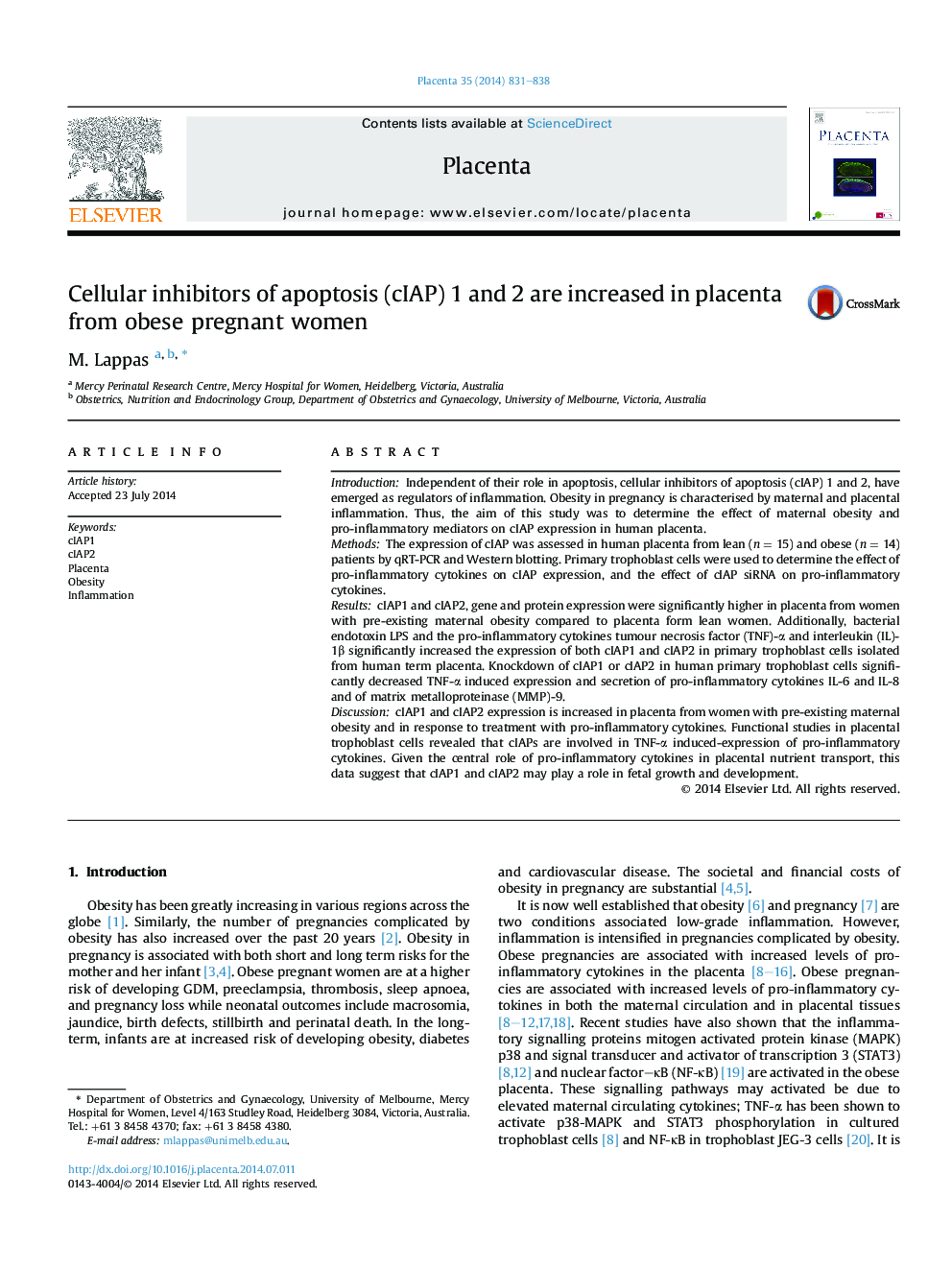| Article ID | Journal | Published Year | Pages | File Type |
|---|---|---|---|---|
| 5894821 | Placenta | 2014 | 8 Pages |
â¢Cellular inhibitors of apoptosis (cIAP) 1 and 2 are increased in placenta from obese women.â¢LPS, TNF-α and IL-β increased the expression of cIAP1 and cIAP2 in human trophoblast cells.â¢Knockdown of cIAP1 decreased TNF-α induced cytokine expression from primary trophoblast cells.â¢Knockdown of cIAP2 decreased TNF-α induced cytokine expression from primary trophoblast cells.
IntroductionIndependent of their role in apoptosis, cellular inhibitors of apoptosis (cIAP) 1 and 2, have emerged as regulators of inflammation. Obesity in pregnancy is characterised by maternal and placental inflammation. Thus, the aim of this study was to determine the effect of maternal obesity and pro-inflammatory mediators on cIAP expression in human placenta.MethodsThe expression of cIAP was assessed in human placenta from lean (n = 15) and obese (n = 14) patients by qRT-PCR and Western blotting. Primary trophoblast cells were used to determine the effect of pro-inflammatory cytokines on cIAP expression, and the effect of cIAP siRNA on pro-inflammatory cytokines.ResultscIAP1 and cIAP2, gene and protein expression were significantly higher in placenta from women with pre-existing maternal obesity compared to placenta form lean women. Additionally, bacterial endotoxin LPS and the pro-inflammatory cytokines tumour necrosis factor (TNF)-α and interleukin (IL)-1β significantly increased the expression of both cIAP1 and cIAP2 in primary trophoblast cells isolated from human term placenta. Knockdown of cIAP1 or cIAP2 in human primary trophoblast cells significantly decreased TNF-α induced expression and secretion of pro-inflammatory cytokines IL-6 and IL-8 and of matrix metalloproteinase (MMP)-9.DiscussioncIAP1 and cIAP2 expression is increased in placenta from women with pre-existing maternal obesity and in response to treatment with pro-inflammatory cytokines. Functional studies in placental trophoblast cells revealed that cIAPs are involved in TNF-α induced-expression of pro-inflammatory cytokines. Given the central role of pro-inflammatory cytokines in placental nutrient transport, this data suggest that cIAP1 and cIAP2 may play a role in fetal growth and development.
